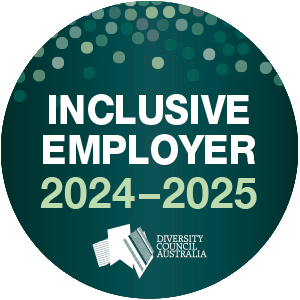20 May 2021

Chief Executive Officer
No to Violence
A lot of people think that they could recognise what a ‘violent and abusive’ man looks like. Across our communities, there is a common question of ‘why did she get in a relationship with him’ or ‘didn’t she see the signs’.
While there can be signs of an abusive relationship, the behaviour itself is not exclusive to one type of man. More often than not, the people who end up being abusive and violent start off charming and not anyone you would expect to be capable of violence or abuse.
Like the rest of the community, every abusive and violent man has different life experiences, backgrounds and motivations. Each man who uses abuse and violence has different and unique pattern of behaviours and tactics and with his own factors that have contributed to his choice to use violence and abuse.
While there are infinite differences, there are also some commonalities. Many men will present with similar attitudes and narratives about his use of violence and abuse against their partners or children. Research over recent decades looking at different typologies of domestic and family violence perpetrators.
No to Violence represents organisations that work directly with these men. As you will have seen in the finale episode of See What You Made Me Do, an important way of working with men is through group programs that encourage the man to be accountable for his behaviour.
In my conversations with practitioners every day, I hear of the commonality across these groups. These men exist behind an invisible wall of smokescreens at the beginning of their journey to addressing their behaviour. Denial, shame, minimisation, justification, blaming others, deflection – each man presents with his own version of these variables, and different readiness or resistance to work to start their journey of change.
There are the men who are deeply shamed by being arrested in front of their crying children – knowing that it’s time to address his behaviours yet terrified of what the group of men he is sitting with will think of him.
There is the man who is riddled with anxiety and swirling thoughts about how he is ‘going to get back together’ because he will never do it again, it was just because. His denial is often palpable and hangs with a dark heaviness in the room. He can’t sleep because of his behaviour.
There is the man sitting next to him who sleeps well because he has convinced himself that he is the victim, and the system has just got it wrong. He spends a lot of time convincing everyone around his victim that she’s the problem – keeps up his relentless pattern of coercive control because he can’t deal with looking at his own accountability.
Then there is the one across the room who is couch surfing due to an exclusion order, has episodes where he goes a ‘bit mad’ when he drinks, hasn’t taken responsibility for his actions and insists “this is me and you just have to accept that”.
Men who use violence and abuse are not one homogenous group. We know that we need to have different approaches to address each individual. We know we need to find new ways of addressing the different behaviours of different men who use violence and abuse, because without doing this, the cycle will continue.
I believe that men are not born violent; rather life experiences embed the propensity to use violence within them; and the society that we live within often encourages and enables them to use it.
In our work, and in the work of the sector who work with men using violence, we have seen it possible to change. But more needs to be done to address the different ‘kinds of men’ who use violence and abuse; to shift the burden of the violence from victim-survivors, and to address a society that enables the abuse which we all know is too common.
Jacqui Watt is the Chief Executive Officer of No to Violence, Australia’s largest peak body for organisations that work with men who use family violence, and the operator of the Men’s Referral Service. Jacqui has long experience working across the community and women’s sector across Australia and United Kingdom, including in the fields of alcohol and drugs, mental health, disability, social housing and social enterprise.








